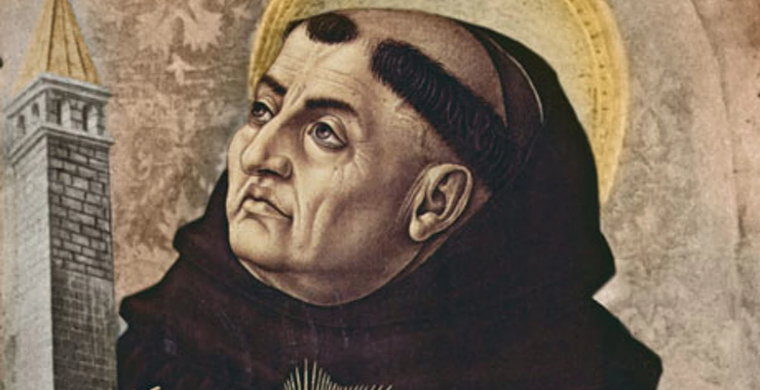Why Thomas Aquinas Distrusted Islam
By Thomas D. Williams
BREITBART
http://www.breitbart.com/big-government/2015/12/27/thomas-aquinas-distrusted-islam/
December 2015
The 13th-century scholar Thomas Aquinas, regarded as one of the most eminent medieval philosophers and theologians, offered a biting critique of Islam based in large part on the questionable character and methods of its founder, Mohammed.
According to Aquinas, Islam appealed to ignorant, brutish, carnal men and spread not by the power of its arguments or divine grace but by the power of the sword.
Aquinas, a keen observer of the human condition, was familiar with the chief works of the Muslim philosophers of his day--including Avicenna, Algazel, and Averroes--and engaged them in his writings.
Since Islam was founded and spread in the seventh century, Aquinas--considered by Catholics as a saint and doctor of the Church--lived in a period closer to that of Mohammed than to our own day.
In one of his most significant works, the voluminous Summa contra gentiles, which Aquinas wrote between 1258 and 1264 AD, the scholar argued for the truth of Christianity against other belief systems, including Islam.
Aquinas contrasts the spread of Christianity with that of Islam, arguing that much of Christianity's early success stemmed from widespread belief in the miracles of Jesus, whereas the spread of Islam was worked through the promise of sensual pleasures and the violence of the sword.
Mohammad, Aquinas wrote, "seduced the people by promises of carnal pleasure to which the concupiscence of the flesh goads us. His teaching also contained precepts that were in conformity with his promises, and he gave free rein to carnal pleasure."
Such an offer, Aquinas contended, appealed to a certain type of person of limited virtue and wisdom.
"In all this, as is not unexpected, he was obeyed by carnal men," he wrote. "As for proofs of the truth of his doctrine, he brought forward only such as could be grasped by the natural ability of anyone with a very modest wisdom. Indeed, the truths that he taught he mingled with many fables and with doctrines of the greatest falsity."
Because of the weakness of Islam's contentions, Aquinas argued, "no wise men, men trained in things divine and human, believed in him from the beginning." Instead, those who believed in him "were brutal men and desert wanderers, utterly ignorant of all divine teaching, through whose numbers Muhammad forced others to become his followers by the violence of his arms."
Islam's violent methods of propagation were especially unconvincing to Aquinas, since he found that the use of such force does not prove the truth of one's claims, and are the means typically used by evil men.
"Mohammad said that he was sent in the power of his arms," Aquinas wrote, "which are signs not lacking even to robbers and tyrants."
At the time Aquinas was writing, Islam was generally considered a Christian heresy, since it drew so heavily on Christian texts and beliefs. Aquinas wrote that Mohammed "perverts almost all the testimonies of the Old and New Testaments by making them into fabrications of his own, as can be seen by anyone who examines his law."
According to the noted historian Hilaire Belloc, Islam "began as a heresy, not as a new religion. It was not a pagan contrast with the Church; it was not an alien enemy. It was a perversion of Christian doctrine. Its vitality and endurance soon gave it the appearance of a new religion, but those who were contemporary with its rise saw it for what it was--not a denial, but an adaptation and a misuse, of the Christian thing."
In his Summa contra gentiles, Aquinas ends his argument against Islam by offering a backhanded compliment to Mohammed, noting that he had to keep his followers ignorant in order for them to remain faithful.
It was, Aquinas wrote, "a shrewd decision on his part to forbid his followers to read the Old and New Testaments, lest these books convict him of falsity."
"It is thus clear that those who place any faith in his words believe foolishly," he wrote.














